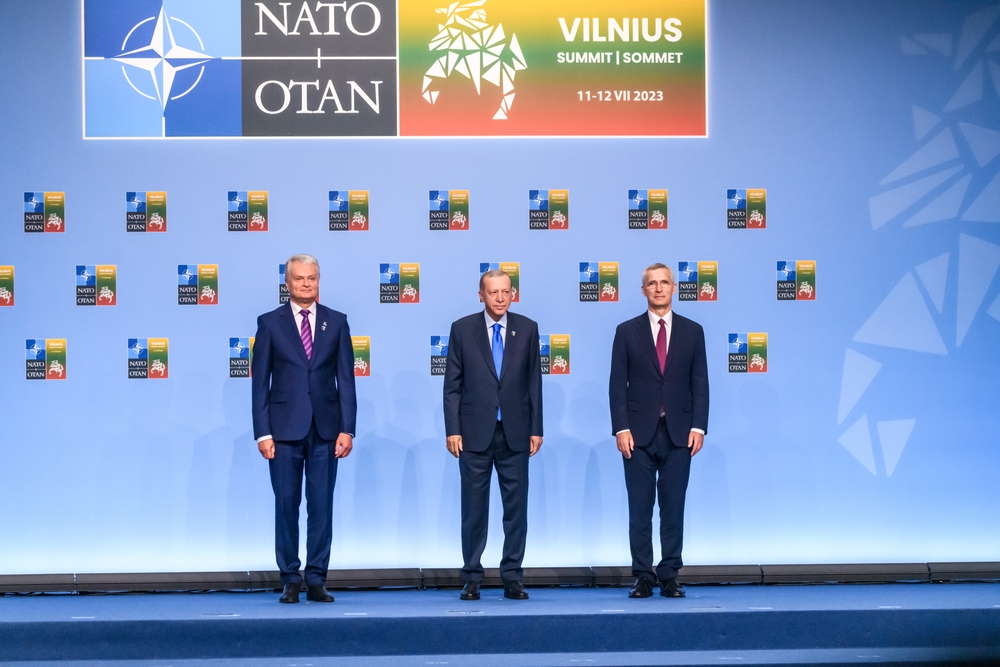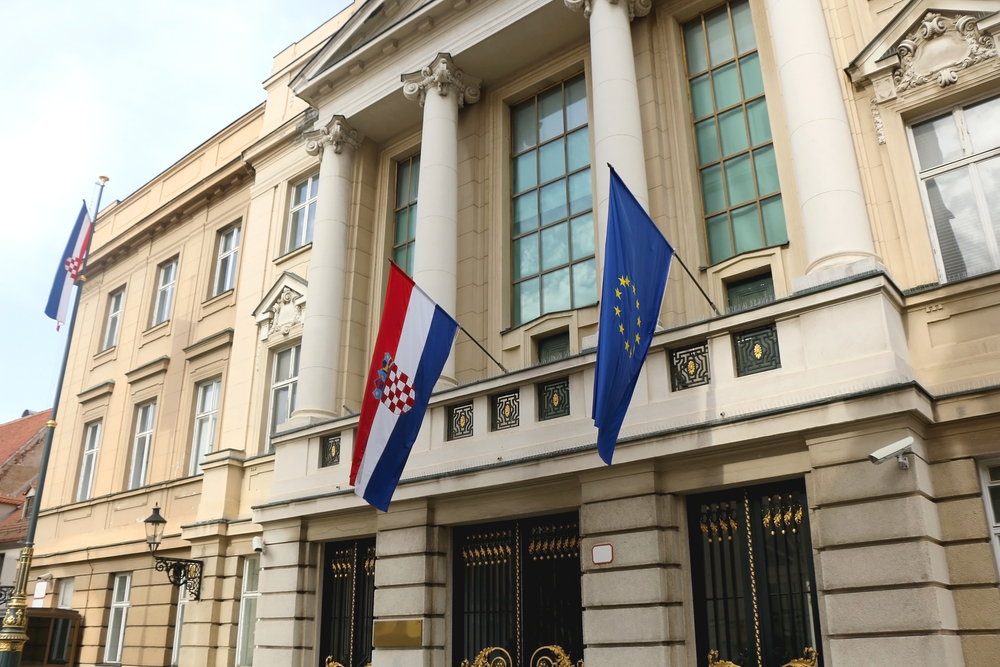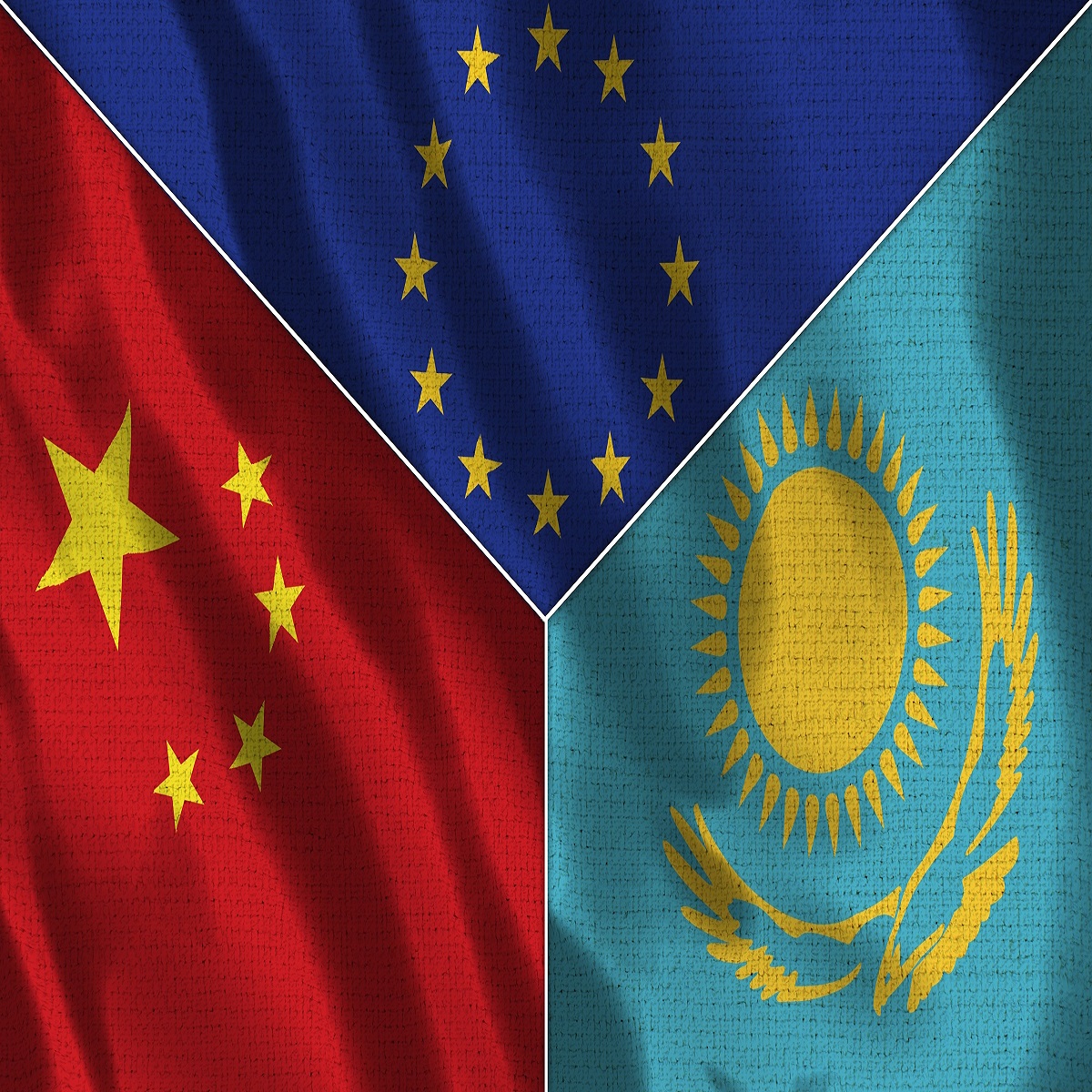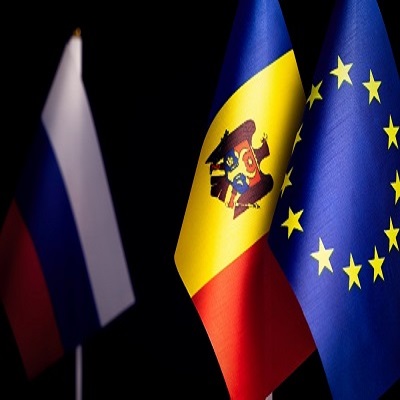
Erdoğan Seeks Better Relations with the West after His Reelection
by Salim Çevik
Turkish President Recep Tayyip Erdoğan seems to have changed course on his country’s foreign relations. At the last NATO summit in Vilnius, Lithuania, he finally lifted his veto on Sweden’s proposed membership in the alliance; but his agreement is still incomplete as it requires the approval of the Turkish Parliament. And Erdoğan has apparently made parliamentary approval contingent on the US Congress approving his country’s purchase of F-16 fighter jets, which many assume may now be a done deal. Moreover, during the talks on Sweden’s accession, Erdoğan reiterated Turkey’s desire to join the European Union (EU) and hoped for a revival of the long-dead EU membership process. Prior to the Vilnius summit, Erdoğan further showcased his foreign policy outreach by hosting Ukrainian President Volodymyr Zelenskyy in Ankara, signaling support for Ukraine in its ongoing war with Russia. On the domestic front, Erdoğan has formed a new cabinet that signals better relations with the West, as the most ardent anti-western member of the previous cabinet, former Interior Minister Süleyman Soylu, has been left out. Additionally, the president aims to instill confidence in western markets by appointing respected figures like Mehmet Simsek as economy minister and Hafize Gaye Erkan as Central Bank governor. These appointments are seen as positive signals of an effort to strengthen economic ties with the West. This series of moves has triggered the hope, especially in western circles, that Turkey could return to the western fold and that Turkish-Russian relations will cool in parallel. However, pessimists, who see Turkey’s departure from the West as a done deal, disagree and are right to believe that Turkey’s relations with both the United States and European countries have fundamentally changed. It is no longer possible to go back to the early 2000s when Erdoğan was steering the country toward EU membership. The EU has no intention of admitting Turkey; but even if it did, the process would not be in Erdoğan’s favor. Nor is it possible to go back to the Cold War era, when Turkey was firmly embedded in the western geopolitical system. Turkey no longer sees Russia as a threat or an adversary in the sense that most western countries do. The fact that Turkey has resisted approving Sweden’s NATO membership for more than a year and that it will only do so in exchange for the delivery of F-16s shows how badly damaged Turkish-European and Turkish-American relations truly are. Therefore, pessimists point out that rather than signaling Turkey’s return to the West, the whole debacle proves how problematic and transactional Turkish-western relations have become. But these analysts overlook the fact that Erdoğan is pushing for a reorientation in foreign policy, and in his relations with the West in particular. This reorientation started long before the most recent presidential elections in May; but the president’s victory gave him a stronger hand to reboot his foreign policy, which is not aimed at bringing Turkey back into the West’s orbit, but rather at building better functioning relations with it. Turkey’s Departure from the West Turkey’s divergence from the West has taken place at the level of both political values and geopolitics. Over the last decade, Turkish democracy has been in serious decline. Especially after the transition to a hyper-presidential system in 2018, which eliminated all checks and balances in the political system, Turkey’s has become an increasingly autocratic regime. Turkish foreign policy has also become increasingly militarized, much to the chagrin of western capitals. Not only has Turkey used its military power in Syria, Iraq, and Libya but it has also deployed its navy to the Eastern Mediterranean, aggressively threatening the sovereignty of two EU countries: Greece and Cyprus. These aggressive policies were backed by an expansionist naval doctrine called Mavi Vatan (Blue Homeland), whose ideology has disturbed western policymakers. The naval officers who created and developed the Blue Homeland concept never concealed their pro-Russian leanings and deliberately propagated an anti-American and anti-western narrative. These officers, and the political circles associated with them—dubbed Eurasianists in Turkey—have become an integral part of Turkey’s ruling coalition. Turkey’s purchase of S-400 missiles from Russia took place in such a context and represents the culmination of Turkish-American tensions. Turkey’s autocratic turn at home and its militarized foreign policy, which often work against the interests of its western allies, were simultaneous and mutually-reinforcing processes. But said foreign policy reached its limits toward the end of 2020. Turkey became regionally isolated with an overextended military, and its aggressive foreign policy, the rise of authoritarianism, and the subsequent decline of the rule of law plunged it into a protracted economic crisis. This economic downturn began to undermine Erdoğan’s meticulously-built power, as evidenced by his party’s defeat in the 2019 local elections. Unable to sustain autocratic rule, anti-westernism, and an aggressive foreign policy all at the same time, Erdoğan began to seek a new direction. The essence of the new approach is to maintain his authoritarian rule at home while becoming a less confrontational actor in foreign relations. Reorientation in Foreign Policy This reorientation began first in the Middle East, where Turkish authoritarianism was never going to be a cause for concern. Turkey began to mend fences with Israel, Egypt, Saudi Arabia, and the United Arab Emirates, while at the same time aligning itself with the emerging Abraham Accords framework in the region. While accommodating western geopolitical interests, Turkey’s relations with Iran began to enter a more confrontational phase. One of the main motivations for this regional restructuring was economic: Turkey continues to receive significant form of foreign investment from Gulf states. Another motivation was geo-strategic: Turkey hoped that normalization with Israel, and to a lesser extent with supposedly pro-western Arab regimes, would help ease tensions with the United States. While reconciling with its Middle Eastern rivals, the Erdoğan administration was also looking for opportunities to curry favor with Washington and increase its own importance in the eyes of the Biden administration. One of the early opportunities came in the summer of 2021 after the US withdrawal from Afghanistan when Turkey immediately stepped in and offered to take over the protection of Kabul International Airport. This initiative earned Erdoğan his first personal meeting with Biden. However, the unprecedented rapid collapse of the Kabul government prevented Ankara from using the Afghanistan front as a base to build its relations with the United States. A second opportunity arose in February 2022 when the Russian invasion of Ukraine began. New Opportunities for Erdoğan The war in Ukraine has had contradictory effects on Turkey’s foreign policy and on Turkish-western relations. On the one hand, it increased Turkey’s strategic value and facilitated its reengagement with the West. On the other hand, it created additional difficulties as western countries demanded that Turkey sever its ties with Russia, a demand that Turkey rejected. Erdoğan ultimately managed to spread the idea that perhaps it would be better for everyone if Turkey remained relatively neutral. Erdoğan’s personal ties with Putin and the complex and highly interdependent Turkish-Russian relations placed Turkey in a special position among NATO countries. Turkey therefore tried to maintain a pro-Ukrainian line without being anti-Russian. So far, Erdoğan has managed to maintain this seemingly paradoxical position. Turkey has given full military support to Ukraine, and especially in the early days of the war Turkish drones were vital for Ukraine’s defense. To be sure, this support was better than that of many European countries. Politically, however, and while condemning Russia’s occupation of Ukrainian territory since 2014, it has not joined in imposing sanctions on Russia, and the two countries have maintained good diplomatic relations. Erdoğan clearly enjoyed his balancing role. His policies during the Ukraine war have earned the Turkish public’s respect and helped, at least indirectly, in his reelection as they contributed to his image as a world-renowned statesman. Turkey also enjoyed the economic benefits of its being Russia’s main economic outlet. Not only did Turkish-Russian trade increase, but Putin lent a helping hand in the run-up to the elections by agreeing to delay Turkey’s natural gas payments and depositing much-needed foreign currency in the Turkish Central Bank. Erdoğan justified this unique position by emphasizing his mediating role between Ukraine and Russia and between the latter and the West. In this context, securing the grain deal was a particularly important achievement that helped Erdoğan justify his balancing act. Now the deal appears to be in tatters, raising questions about his ability to maintain his role as mediator. The Turkish president has also raised eyebrows in Moscow by recently hosting President Zelenskyy and increasing his support for Ukraine’s NATO membership. He even tested the Kremlin’s nerve by allowing Azov fighters to return to Ukraine with Zelenskyy, an apparent violation of a prisoner swap deal brokered by Turkey. Despite all this, Erdoğan wants to stick to his original position and continue to play the role of mediator. He is counting on the fact that Putin currently cannot afford a falling-out. Erdoğan has already indicated that he expects to host Putin in Turkey in August for a one-on-one meeting, although so far the Russian side has not confirmed the visit. Russia’s reaction to Turkey’s recent moves, such as ratifying Sweden’s NATO membership and supporting Ukraine’s NATO membership, has also been rather mute. Therefore, Turkey’s pivot to the West does not mean that it will cool its relations with Russia. Erdoğan realizes that the longer he maintains his balancing role, the stronger his hand will be with both the West and Russia. A Revitalization of Turkey-EU Relations? If there is no going back to the Cold War era, there is also no returning to the early 2000s, when Turkey was pushing for EU membership. Despite surprising everyone by rekindling the dormant EU membership process ahead of the Vilnius summit, Erdoğan’s move is unlikely to breathe life into Turkey’s EU accession aspirations. This is primarily due to the fact that EU membership would not align with the president’s personal interests, as it would necessitate a higher standard of the rule of law that might curtail his currently unchecked and absolute authority in the country. The accession process revolves around aligning a nation’s internal standards with EU norms, known as the community acquis. Consequently, becoming an EU member would demand a transformation of Turkey’s domestic political system, which currently concentrates power in Erdoğan’s hands. Given this, how should Erdoğan’s statements on revitalizing the EU process be interpreted? Part of the explanation has to do with his transactional style of policymaking. A master of brinkmanship and bargaining, Erdoğan often raises demands and stakes just to get a better deal. This is why Turkey’s foreign policy disputes are often resolved at the 11th hour, as is still the case with Sweden’s NATO membership. But these tactical moves also reflect Erdoğan’s genuine desire to improve relations with the EU. It is important to note, however, that Erdoğan does not necessarily want Turkey to be inside the EU; he simply wants to do business with it. The EU remains Turkey’s primary economic partner, and Ankara has long been demanding a modernization of the Customs Union agreement with the bloc to boost its trade. Moreover, better relations with European countries are expected to be instrumental in attracting much-needed foreign investment. Gulf money has only carried Turkey so far, and to solve its deep economic problems it is necessary to attract the financial power of the West. Thus, Erdoğan wants more engagement with Europe on the economy, defense, security, and refugee issues, but not in the context of EU membership. In fact, the refugee deal signed between Turkey and the EU in 2016 was designed precisely around the idea that Turkey is not and will not be part of the EU. Accordingly, Turkey continues to block the movement of refugees toward Europe in exchange for financial assistance from the EU. The bloc has recently concluded similar agreements with North African countries, aiming to externalize its refugee problem. For this cooperation with Turkey to work, Turkey needs to be outside the EU, not inside it. Thus, Turkey’s desire to create better working conditions with the EU is emblematic of the nature of its reorientation toward the West. Furthermore, western capitals seem increasingly willing to respond positively to overtures made by the Turkish President. Western Reaction to Erdoğan’s Moves It is not only Erdoğan who has changed his position; the West has also changed its approach to him. Biden and other western leaders were distancing themselves from Erdoğan in anticipation of his loss in the presidential elections. Biden did not invite him to Washington and did not visit Ankara, despite Turkey’s growing importance in the context of the Russia-Ukraine war. Knowing how much Erdoğan values personal meetings, Biden used them as leverage to resolve stalemates like the one over Sweden’s NATO membership. Moreover, having learned Erdoğan’s style of politics over the years, western leaders successfully avoided becoming his punching bag ahead of the elections, as former German Chancellor Angela Merkel did during Turkey’s 2017 constitutional referendum. To achieve this, they followed a policy of ignoring rather than supporting Erdoğan. But when the elections were over and he was set to rule Turkey almost single-handedly for another five years, western leaders rushed to congratulate him. It is also becoming much easier for the West to work with Turkey on a geostrategic and security level. For the United States, Turkish-American security cooperation is shifting from the Middle East to the Black Sea. Turkish-American relations in the Middle East have inevitably taken on a more political and ideological character, with the two countries’ different threat perceptions and respective approaches to the Kurdish issue and to Kurdish actors in northern Syria remaining the biggest challenge in bilateral relations. In contrast, Turkey and the United States are more in agreement on the Black Sea. Moreover, within the Pentagon, EUROCOM’s approach to Turkey is much more friendly than CENTCOM’s, and has a better track record of cooperation. For Europe, Erdoğan’s commitment to the migration deal makes him a valuable partner, especially given the growing anti-immigration stance of the Turkish and European publics. Moreover, Erdoğan’s preference for working with the EU but for simultaneously not genuinely pushing for membership in it fits well with European policies. The EU and Erdoğan are more in agreement on their common desire to keep Turkey out but to simultaneously build better working relations. Overall, it seems clear that Erdoğan is eying a new reorientation in his foreign policy. At the moment he is at the height of his power at home and does not need to use the West as a punching bag for domestic political gains. Furthermore, economic conditions and regional developments are compelling him to lean more toward western powers. As a result, Turkish foreign policy is poised to take a new direction. Nevertheless, any improvement in relations will likely be limited to the geostrategic and economic realms and will not encompass a realignment of political values. Without common political values, the result will be significantly improved but will remain transactional between Turkey and its western partners. This paper was originally published by Arab Center Washington DC. Republished with permission. © Arab Center Washington DC, October 2023.













